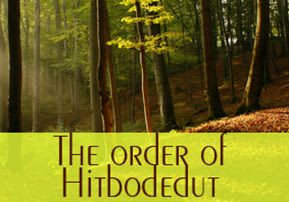
The Order of Hitbodedut, Part 1
There are general topics that should be included in our hitbodedut. The time and effort we devote to each of these topics will vary from day to day and from person to person…

Translated by Rabbi Lazer Brody
In Forest Fields, Part 34
Let’s discuss the general topics that should be included in our hitbodedut. The time and effort we devote to each of these topics will vary from day to day and from person to person. Once again, they are a guideline but not a rigid framework.
A – Emuna
In order to speak to Hashem, a person needs emuna. Therefore, the first component we need for effective hitbodedut is emuna. One should believe that everything in life comes from Hashem and is for the very best. Every individual should be able to tell himself, “Hashem loves me; He loves my prayers and wants to help me. He is unlimited and His mercy knows no bounds. He has compassion on me, regardless of my deeds. Everything is under His care.”
Most importantly, one should internalize the emuna that everything is for the very best. Even if things look askew and problematic, with repeated personal prayer, a person will gradually realize how Hashem has done everything for our ultimate benefit and soul correction.
In this respect, emuna and the resulting joy of emuna are a good opener for our hitbodedut session. This is an opportune time to pray for emuna and joy. While in the initial stages of spiritual self-development, our main prayers should be for emuna and happiness. Both are gateways to true Divine service and an escalator for spiritual growth. Whenever things don’t go the way we want them to, when suffering or challenged, or when we feel more down that up, our emuna will enable us to continue on with a smile on our face. Since emuna and joy are the main tools that a person needs to traverse this world, we should beg Hashem to help reinforce our emuna and to be happy with our lot in life no matter what.
A. Giving thanks
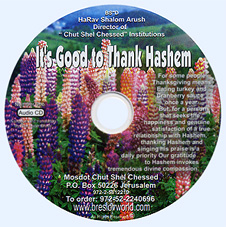 Giving thanks is one of the most important segments of hitbodedut. Gratitude mitigates stern judgments and strengthens emuna. It brings a person to the point of truth, where he sees the myriad of Hashem’s blessings that he would otherwise taken for granted or failed to acknowledge, had he failed to devote time to personal prayer and to giving thanks. Gratitude leads to happiness. Without happiness, a person can barely open his mouth. What’s more, thanking Hashem for our blessings prevents a person from falling into the pitfalls of complaint, pessimism, grievances, the type of negativity that arouses and invokes harsh judgments, G-d forbid. Giving thanks has a marvelous effect on our souls, for it’s like a sieve that sifts the good from the bad within us.
Giving thanks is one of the most important segments of hitbodedut. Gratitude mitigates stern judgments and strengthens emuna. It brings a person to the point of truth, where he sees the myriad of Hashem’s blessings that he would otherwise taken for granted or failed to acknowledge, had he failed to devote time to personal prayer and to giving thanks. Gratitude leads to happiness. Without happiness, a person can barely open his mouth. What’s more, thanking Hashem for our blessings prevents a person from falling into the pitfalls of complaint, pessimism, grievances, the type of negativity that arouses and invokes harsh judgments, G-d forbid. Giving thanks has a marvelous effect on our souls, for it’s like a sieve that sifts the good from the bad within us.Maybe you don’t feel sincere in giving thanks at this particular point in time, and you just want to cry or to yell about whatever hurts you, you should still force yourself to thank Hashem for your basic blessings in life (heart, lungs, clothing on your back, the food you ate earlier in the day) remembering that plenty of folks are less fortunate. Gratitude for life’s basics illuminates truth and enables a person to avoid the type of bitterness that destroys personal prayer.
The advice of giving thanks is time-tested and proven. In my own personal experience, many are the times when I arrived at my hitbodedut session confused, upset, bitter, and tormented inside and out.
There were times when the whole world looked like one dismal black pit. I started to thank Hashem for all the difficult things in my life. Once I started thanking Hashem for the seemingly bad, my emuna was strengthened to the extent that I started seeing how everything was really for the best. Once I internalized that, I began to thank Hashem with all my heart. The sadness left me and I began to see the world in its proper perspective, realizing that everything is for the best, Divinely arranged and guided, created by Hashem and under His personal supervision. I discovered the wonderful feeling of standing before Hashem, being able to say whatever I want, and knowing that Hashem can solve all my problems.
If I would have skipped giving thanks to Hashem on the pretense that I wasn’t sincere, because during difficult times I felt like venting emotions, crying and shouting, then I would have forfeited the blessings of reinforced emuna, happiness, and enhanced spiritual awareness. Also, I could have easily slid into a rut of bitterness and self-pity, thereby making my situation even worse by arousing stern judgments. By thanking Hashem, we solidify our emuna that everything is for the very best.
In light of the above, even if you want to flow with personal prayer according to the way you feel at a given time, don’t neglect giving thanks for the basic blessings in life that you enjoy. People protest that their crying and shouting is real, whereas their gratitude is not. Yet, crying and shouting can sink a person into a deeper depression and a fit of anger, while gratitude can save him from anger and depression.
Despite the importance of giving thanks, personal prayer is still personal prayer. We should realize the importance of giving thanks, but we don’t need to plan a regimented hitbodedut. It’s enough that the rest our daily agenda is regimented. Our hitbodedut should flow with no limitations or rigid rules. The goal of our discussion about giving thanks is to realize the benefits of incorporating our gratitude to Hashem within the framework of our hitbodedut. When we ponder the things we should be thankful for, we become aware of Hashem’s blessings and stop taking things for granted. The more we realize “How good it is to thank Hashem (Psalm 92:2),” the more we’ll naturally gravitate toward thanking Hashem in the beginning of our personal prayer session.
Here are a few of the blessings that a person can always be thankful for: the Torah, the mitzvot, the Sabbath and holidays, the gift of personal prayers, the privilege of having a connection with tzaddikim, one’s rabbi and spiritual guide, and many more. These are the spiritual blessings that one can’t sufficiently thank Hashem for in a million years of personal prayer. That’s why it’s important to thank Hashem for these blessings at least once a day.
Most of us have two eyes that see, a normal heart, all of our limbs, a functioning brain, and many more blessings. Some people don’t appreciate their blessings until they lose them, G-d forbid. By thanking Hashem for our healthy organs one by one, we assure their continued health.
The important aspect is to count our blessings and to thank Hashem for them. This is ever so conducive to more and bigger blessings.
To be continued.




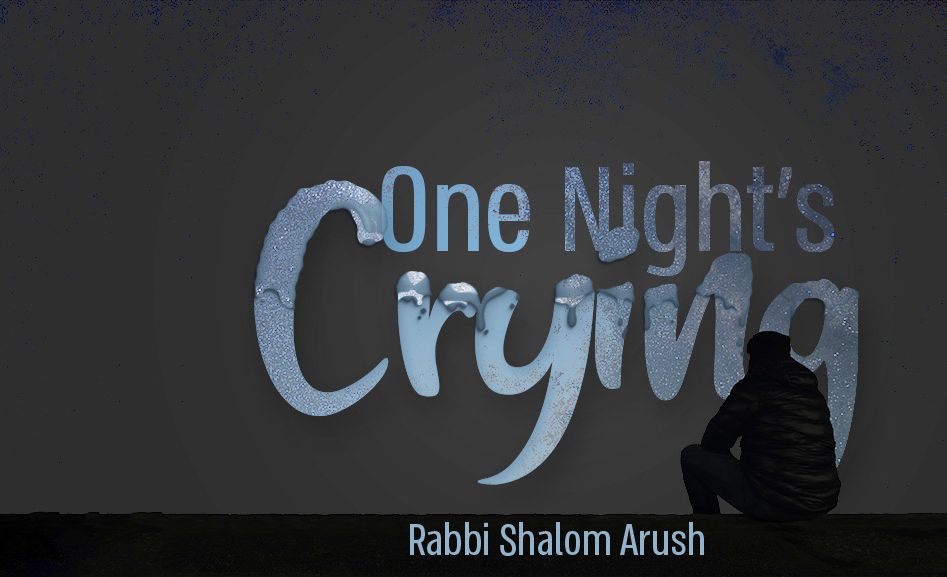

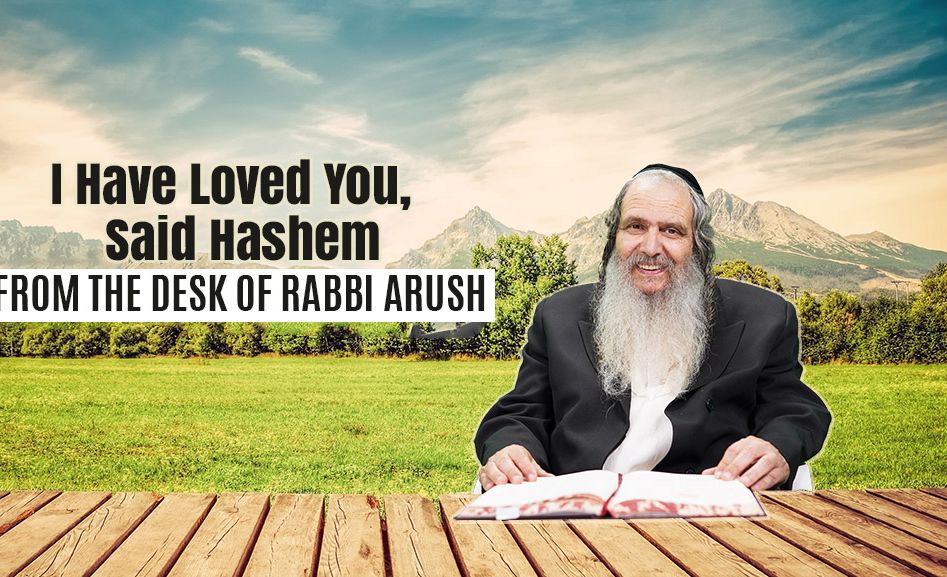
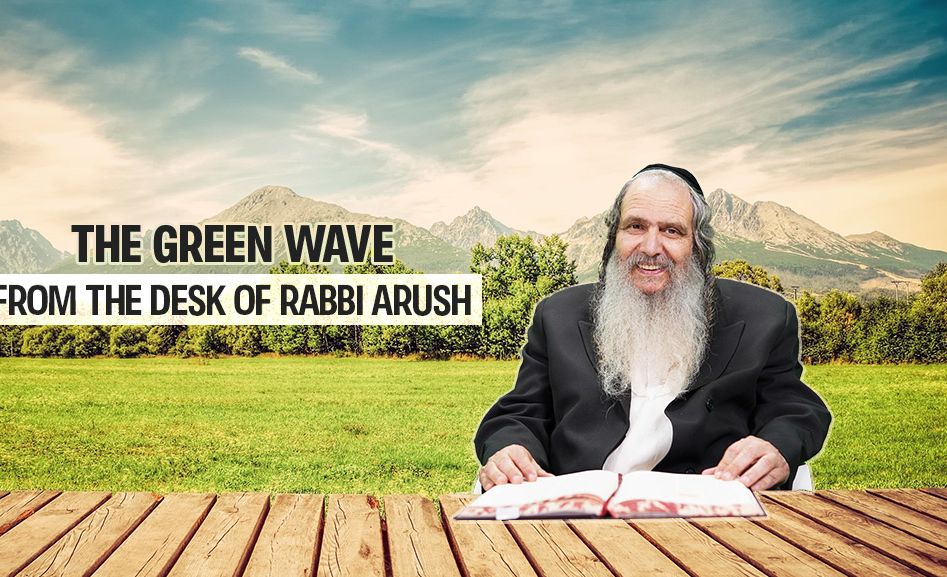
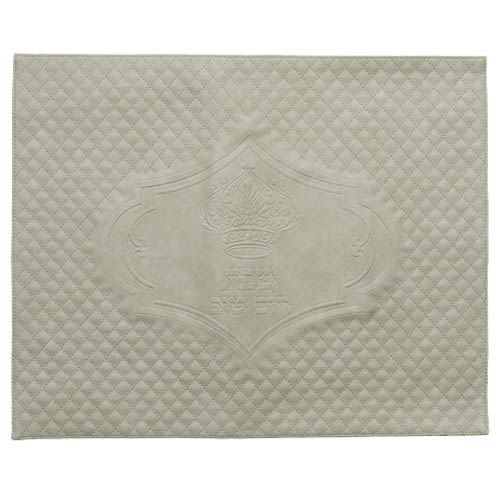



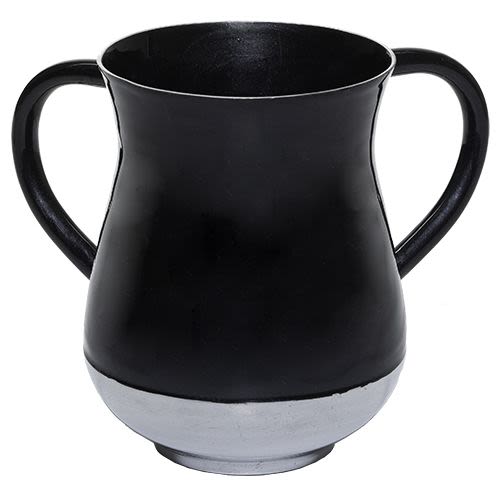
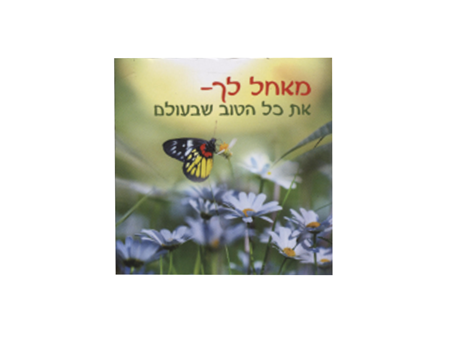
Tell us what you think!
Thank you for your comment!
It will be published after approval by the Editor.